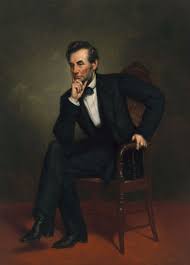abraham lincoln,abraham lincoln biography,lincoln,abraham lincoln facts,abraham linkon,abraham,abraham lincoln life,abraham lincoln quotes,assassination of abraham lincoln,abraham lincon,abe lincoln,the crazy facts of abraham linkon,abraham lincoln kimdir,abraham lincon biography,abraham lincon life story,abraham lincoln real,draw abraham lincoln,abraham lincoln video,abraham lincoln movie,abraham lincoln motivation,abraham lincoln signed
Abraham Lincoln: The Life and Legacy of America's 16th President
Abraham Lincoln, the 16th President of the United States, is one of the most revered figures in American history. Born into poverty and rising to the highest office in the land, Lincoln’s life is a testament to perseverance, leadership, and moral integrity. His presidency, marked by the Civil War and the abolition of slavery, reshaped the United States and left a lasting legacy that continues to influence the nation today. This article explores the life, achievements, and enduring impact of Abraham Lincoln.
Early Life and Background
Abraham Lincoln was born on February 12, 1809, in a log cabin in Hardin County (now LaRue County), Kentucky. His parents, Thomas and Nancy Lincoln, were farmers of modest means, and young Abraham grew up in a frontier environment that required hard work and self-reliance. Despite limited formal education, Lincoln developed a love for reading and learning, which would serve him well throughout his life.
In 1816, the Lincoln family moved to Indiana, where they faced continued hardships, including the death of Nancy Lincoln when Abraham was just nine years old. Despite these challenges, Lincoln’s early experiences in the rural Midwest shaped his character and his views on life. He worked various jobs, including as a rail-splitter, store clerk, and surveyor, before eventually pursuing a career in law.
Lincoln’s legal career began in earnest when he moved to Springfield, Illinois, in 1837. He quickly established himself as a capable and respected lawyer, known for his honesty, intelligence, and persuasive oratory. It was during this time that Lincoln became increasingly involved in politics, initially as a member of the Whig Party and later as a founding member of the Republican Party.
Political Rise and the Road to the Presidency
Lincoln’s political career began with his election to the Illinois State Legislature in 1834, where he served four terms. During his time in the legislature, Lincoln developed his skills as a politician and public speaker, often engaging in debates on issues such as infrastructure development and banking. However, it was his opposition to the expansion of slavery that would come to define his political identity.
In 1846, Lincoln was elected to the U.S. House of Representatives, where he served a single term. During his time in Congress, he spoke out against the Mexican-American War and introduced the “Spot Resolutions,” challenging President James K. Polk’s justification for the conflict. Although his anti-war stance was unpopular with many of his constituents, it demonstrated Lincoln’s willingness to stand by his principles, even at the risk of political unpopularity.
After his term in Congress, Lincoln returned to Springfield and resumed his legal practice. For several years, he remained relatively inactive in national politics, focusing instead on his law career and family life. However, the passage of the Kansas-Nebraska Act in 1854, which allowed for the possibility of slavery expanding into new western territories, reignited Lincoln’s political ambitions.
The Kansas-Nebraska Act led to the formation of the Republican Party, which opposed the expansion of slavery. Lincoln quickly became a leading voice in the new party, delivering powerful speeches that articulated the moral and political arguments against slavery. His debates with Senator Stephen A. Douglas during the 1858 Illinois Senate race brought him national attention, even though he ultimately lost the election.
Lincoln’s growing reputation as an eloquent and principled opponent of slavery made him a natural choice for the Republican nomination for president in 1860. Despite being considered a dark horse candidate, Lincoln won the nomination and went on to win the presidency in a four-way race, defeating his opponents with a platform that opposed the expansion of slavery but promised not to interfere with it where it already existed.
The Presidency and the Civil War
Abraham Lincoln was inaugurated as the 16th President of the United States on March 4, 1861. His election prompted several southern states to secede from the Union, leading to the outbreak of the Civil War. Lincoln faced the enormous challenge of preserving the Union while also addressing the deeply divisive issue of slavery.
From the beginning of his presidency, Lincoln made it clear that his primary goal was to preserve the Union. In his inaugural address, he sought to reassure the southern states that he had no intention of abolishing slavery where it existed, but he also made it clear that secession was illegal and that he would do everything in his power to maintain the Union.
The Civil War began on April 12, 1861, with the Confederate attack on Fort Sumter in South Carolina. The conflict would last for four long and bloody years, resulting in the deaths of more than 600,000 Americans. Throughout the war, Lincoln demonstrated extraordinary leadership, navigating the complexities of military strategy, public opinion, and political opposition.
One of Lincoln’s most significant decisions during the war was the issuance of the Emancipation Proclamation on January 1, 1863. The proclamation declared that all enslaved people in the Confederate states were to be set free. While it did not immediately free all enslaved individuals, it fundamentally altered the nature of the war, making the abolition of slavery a central goal of the Union’s efforts.
Lincoln’s leadership during the Civil War was marked by his ability to inspire and rally the nation. His speeches, including the Gettysburg Address in November 1863, have become some of the most famous and enduring orations in American history. In the Gettysburg Address, Lincoln eloquently expressed the principles of equality and democracy for which the Union was fighting, reaffirming the nation’s commitment to the ideals of liberty and justice.
The Assassination and Lincoln’s Legacy
As the Civil War drew to a close in early 1865, Lincoln was re-elected to a second term as president. His vision for the post-war United States included a policy of “malice toward none” and “charity for all,” as he sought to heal the wounds of a divided nation. Unfortunately, Lincoln would not live to see the full realization of his plans for Reconstruction.
On the evening of April 14, 1865, just days after the Confederate surrender at Appomattox Court House, Lincoln was shot by John Wilkes Booth, a Confederate sympathizer, while attending a play at Ford’s Theatre in Washington, D.C. He died the following morning, becoming the first U.S. president to be assassinated.
Lincoln’s death was a profound tragedy for the nation, and his funeral train’s journey from Washington, D.C., to his final resting place in Springfield, Illinois, was marked by widespread mourning. His assassination left a deep scar on the American psyche, but it also solidified his status as a martyr for the cause of liberty and union.
In the years since his death, Abraham Lincoln’s legacy has only grown. He is remembered as the “Great Emancipator” who played a pivotal role in ending slavery in the United States and as the leader who guided the nation through its most challenging and defining crisis. His commitment to the principles of democracy, equality, and justice has made him an enduring symbol of American ideals.
Conclusion
Abraham Lincoln’s life and presidency are a testament to the power of perseverance, integrity, and moral leadership. From his humble beginnings on the frontier to his ascension to the presidency, Lincoln’s story is one of overcoming adversity and staying true to one’s principles. His leadership during the Civil War, his role in the abolition of slavery, and his vision for a united and just nation have left an indelible mark on American history.
Lincoln’s legacy continues to inspire generations of Americans and people around the world. His belief in the fundamental equality of all people and his commitment to the principles of democracy remain as relevant today as they were during his time. As the nation continues to grapple with issues of justice, equality, and unity, Abraham Lincoln’s example serves as a guiding light, reminding us of the values that have shaped the United States and the enduring importance of leadership in the face of adversity.





